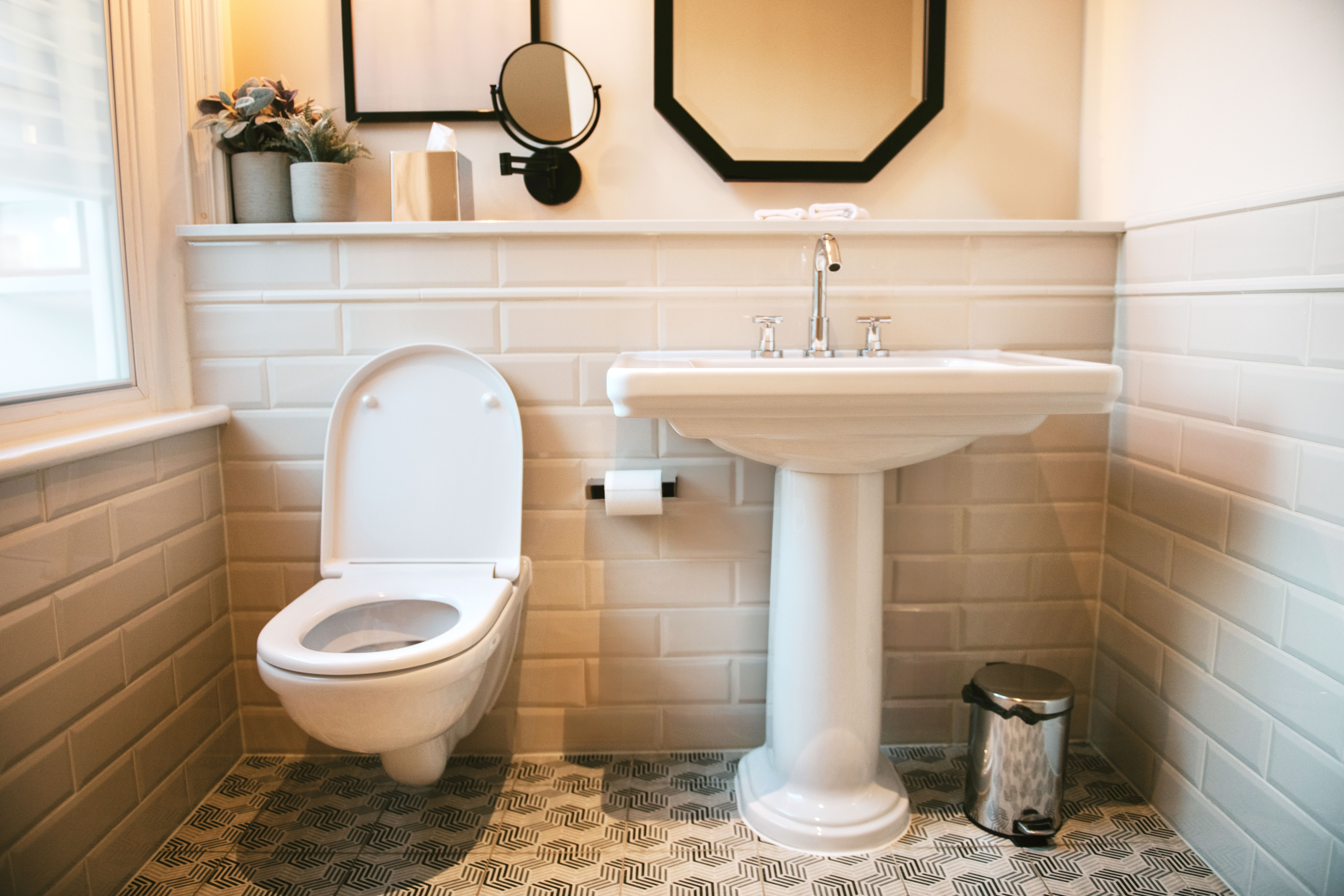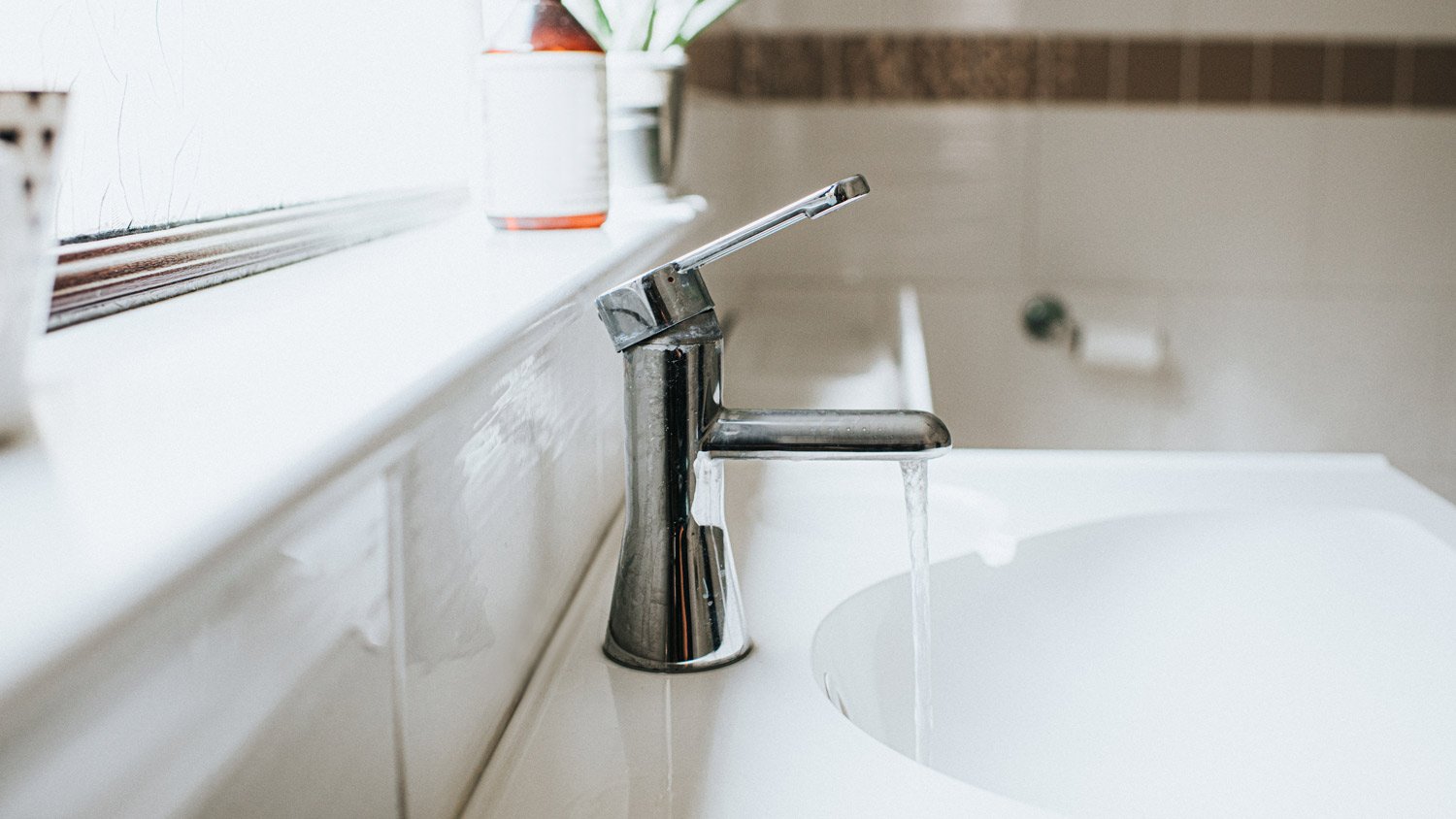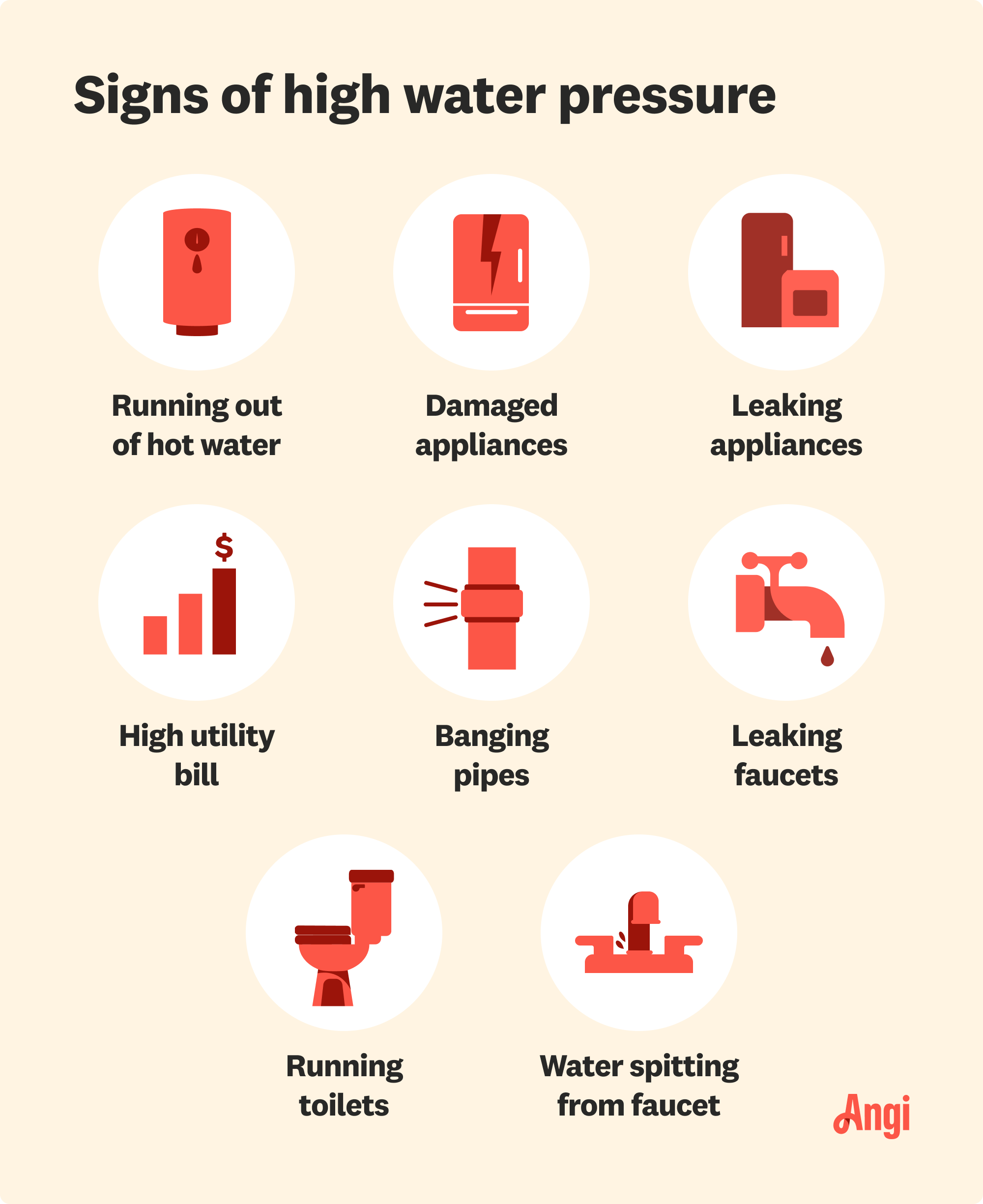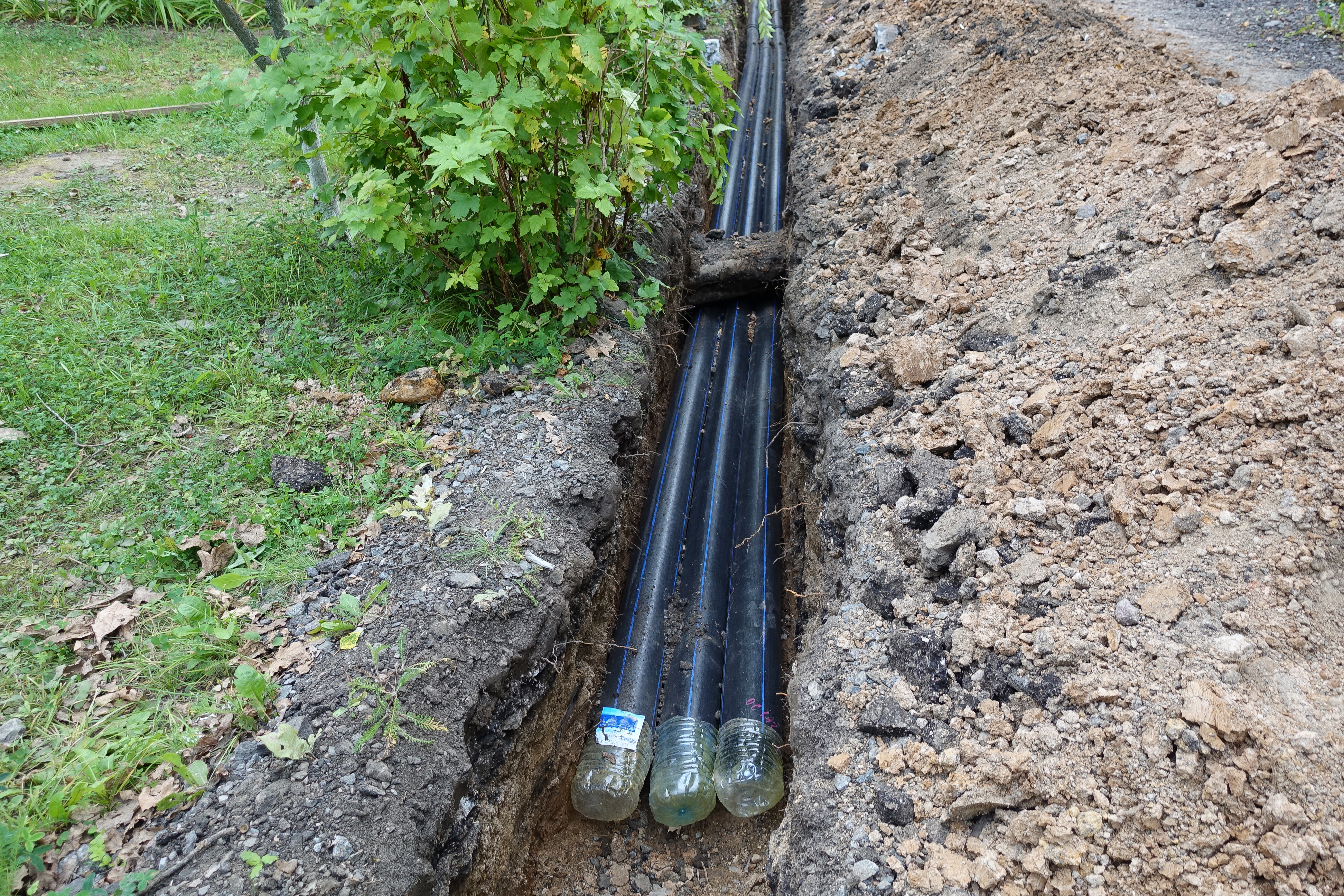
Learn how much a plumber costs in Atlanta and how to hire a licensed pro for repairs, upgrades, or emergency plumbing service in your neighborhood.
Too much pressure? Your pipes feel it, too


High water pressure might feel nice, but excessive water pressure puts pipes and fixtures at risk.
Problems with water pipes, a broken pressure regulator, temperature changes, and water supply changes impact water pressure.
Signs of suddenly high water pressure include pipe and fixture leaks, banging sounds, and water spraying from faucets.
Call a plumber for lengthy water pressure spikes, leaks, and pipe banging sounds.
When you step into the shower in the morning, you probably aren’t thinking about how your plumbing works. You’re focused on the water’s temperature and its pressure. Most people prefer strong water pressure when showering, but most fixtures can only handle 80 psi, and anything higher can cause system failures.
Here are some signs that your water pressure is too high and what you can do to fix the problem quickly.
It sounds counterintuitive—shouldn’t a clog lower water pressure? Not always. If a blockage forms, it can create a pressure imbalance in your pipes and actually increase pressure. The result is water that comes blasting out of some fixtures while others barely drip.
Find the clog before it causes more trouble. If only one fixture has high pressure, try cleaning out the aerator or showerhead. If multiple fixtures have problems, the clog could be deeper in the pipes. A local plumber can pinpoint the problem and clear it before the pressure buildup leads to something worse, like a burst pipe.
When a pipe bursts, water rushes out at full force, which can create a noticeable pressure spike in unaffected pipes. If one faucet suddenly has water-jet-level pressure while another has none, a burst pipe might be the culprit.
Shut off the main water supply immediately to prevent flooding. Then, call a plumber to locate and replace the damaged section before water damage has time to set in. Burst pipe repair costs average $500, but the longer you wait, the higher the repair costs can be.
In the event of a plumbing emergency, it is critical to know the location of your water main shut-off valve in case you need to quickly stop water from flowing into your home. If you are unsure, a pro can help you locate the valve and show you how to operate it.
A pressure regulator or pressure-reducing valve (PRV) reduces high incoming water pressure and keeps your plumbing system’s water pressure in check. But if it fails, it can send your water pressure soaring, making your morning shower feel like you’re standing under a fire hose. Most water pressure regulators last between 10 and 15 years.
If your water pressure is above 80 psi, you experience fluctuating water pressure, or you hear thumping or banging in your walls, your regulator might have failed. A plumber can test it and replace it if needed. In the meantime, you can turn down your main shut-off valve slightly to lower water pressure and offer a temporary fix.

In closed plumbing systems, thermal expansion can cause sudden pressure spikes. As water heats up, it expands. If there’s nowhere for that expansion to go, the pressure builds until it’s released at the weakest point—like your faucets, fixtures, or even pipes. This can happen when you turn on the tap, start the shower, or if there’s a weak pipe that bursts.
If your pipes regularly experience thermal expansion, call a pro to install a thermal expansion tank to absorb extra pressure. This will protect your pipes from stress fractures and leaks, and it will keep your water pressure more even and comfortable.
Extreme weather can mess with plumbing and water pressure. Cold temperatures can freeze water inside pipes, causing an increase in pressure in front of an ice blockage. On the other hand, heat can expand metal pipes, causing higher-than-usual pressure at certain fixtures.
Insulate exposed pipes to prevent freezing in winter, and check for signs of leaks in summer when expansion is more likely. If water pressure spikes happen at the same time as temperature swings, call a plumber to assess whether you need pipe insulation or pressure adjustments.
If your home is connected to the city water system, water pressure issues can start there. If your municipal water provider increases pressure to meet high demand in the system, your home might get caught in the wave.
Check with your water provider to see if they’ve made changes to the water pressure in the system. If the pressure increase is a long-term change, a plumber can install or adjust a water pressure regulator to bring things back to normal at your house.
When cities switch water sources, increase pumping capacity, or repair water mains, you can experience water pressure fluctuations. These changes may be temporary, or they may require you to make permanent adjustments to your home’s plumbing.
Temporary pressure fluctuations can be frustrating, but short-term changes shouldn't harm your plumbing system. However, if the pressure remains high, consider hiring a pro to install a pressure-reducing valve to regulate the flow. A plumber can also check for pressure-related stress on your plumbing and make recommendations to keep your system safe.
Gravity isn’t always your friend. Homes at lower elevations naturally experience higher water pressure because water flows downhill with force. If your neighbors up the hill are enjoying normal water pressure while your faucets feel like power washers, simple gravity might be the reason.
A water pressure regulator is your plumbing system’s best defense. If your home already has one, it may need adjustment or replacement. A plumbing contractor can help you find the right solution.
Tree roots love plumbing systems. They find tiny cracks, wiggle their way inside, and keep growing in the water-rich, no-resistance environment until they create a full-blown obstruction. This can force water into tighter spaces and increase the pressure behind the root restriction or clog.
If you suspect tree roots are the culprit, call a plumber or rooter service that can provide a camera inspection. Hydro jetting or root-cutting tools can clear smaller blockages, but you may need a pipe replacement or reroute for larger issues.
Excessive pressure can build in your plumbing system for several reasons. If you notice any of these signs, call a plumbing pro near you:

Not every water pressure spike is a red flag, but some demand immediate attention. Call a pro if you notice extreme or sudden pressure increases, especially if they happen alongside leaks, dripping faucets, or burst pipes. A professional plumber can determine the cause and fix your water pressure.
It’s also smart to call an expert if fixtures wear out faster than expected or your hot water heater’s relief valve frequently discharges. In these cases, a faucet repair pro near you can repair or replace leaky faucets and install or adjust a pressure-reducing valve to protect your plumbing. Ignoring high water pressure can lead to plumbing leaks, fixture damage, and even pipe failure, so when in doubt, get it checked out.
From average costs to expert advice, get all the answers you need to get your job done.

Learn how much a plumber costs in Atlanta and how to hire a licensed pro for repairs, upgrades, or emergency plumbing service in your neighborhood.

Discover the primary factors that will affect your main water line replacement cost in Atlanta, including length, material selection, and installation method.

Discover average main water line repair costs in Atlanta, GA, plus local factors that affect price, when to hire a pro, and how to maximize your budget.

It’s a big issue when no cold water is coming out of the faucet. Whether it’s a pipe problem or something else, take these steps to identify the cause and get cold water flowing again.

Need to stop a plumbing leak quickly and minimize water damage in your home? Buy yourself some time with these temporary fixes for a leaking pipe.

If the temperatures plummet below 20 degrees, you should pay attention to your home’s pipes. Learn what to do if pipes freeze, and how to prevent them from bursting.